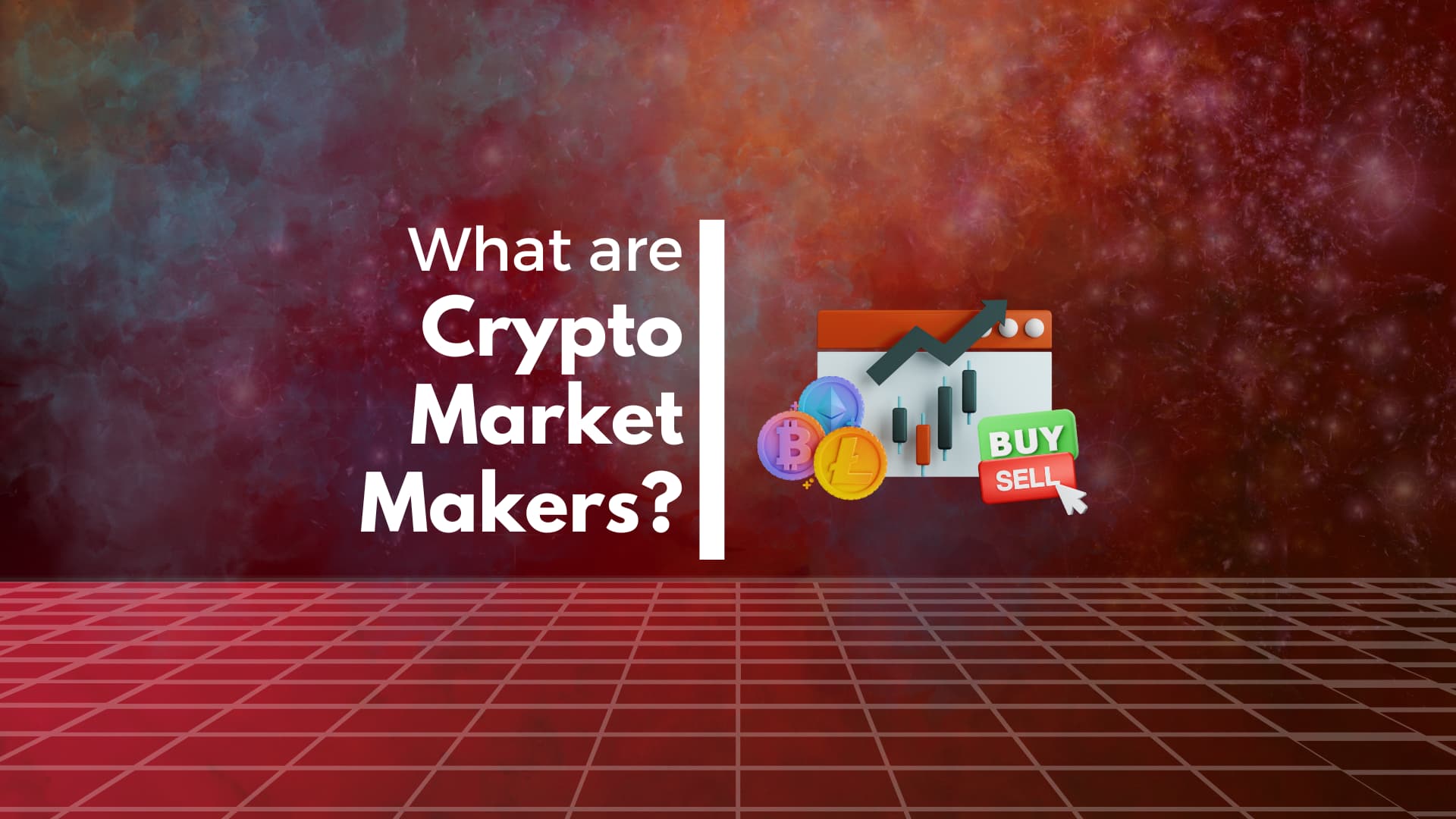Market making is not a new term in the world for traditional finance. Market makers stand as a key source of liquidity in traditional markets, taking the role of makers and takers. How does it work?
A market maker can place an order to buy a stock at $50 per share and at the same time place another order to sell it at $50.05, pocketing the difference.
Such orders are fulfilled at a high frequency, creating a liquid market for other traders who can buy and sell the same assets in this price range per share.
Market makers are usually large players in the market that handle large amounts and can maintain stability in traditional markets.

Table Of Contents 👉
Who are Market Makers in Crypto?
Similarly to market making in traditional markets, crypto market making implies placing buy and sell orders for particular assets on a crypto exchange, increasing liquidity.
The role of market makers in crypto includes:
- placing buy and sell orders;
- reducing bid-ask spreads;
- maintaining market stability;
- contribution to fair price formation;
- reducing volatility;
- attracting new participants to the market.
Let’s see how market makers operate on centralized and decentralized platforms (CEX and DEX).
Market Making in Crypto: CEX and DEX Platforms
Working with Binance or the WhiteBIT market maker crypto exchange, market makers operate within a traditional centralized system. Market makers contribute to liquidity by placing continuous buy and sell orders on the exchange.
They aim to reduce bid-ask spreads, ensuring smoother trade execution and a more liquid market. Centralized exchanges often have specific crypto market-making programs that facilitate the continuous provision of liquidity.
To become a market maker on a CEX, a company needs to provide licenses and prove its compliance with regulations.
Unlike CEX, decentralized exchanges operate without a central authority. Participants engage in peer-to-peer trading directly from their wallets.
Market makers on DEXs contribute liquidity by providing assets to decentralized liquidity pools. Automated market makers, a common mechanism in DEX market making, use smart contracts to facilitate trades without the need for an order book.
Participants can earn fees by contributing assets to these pools, and the protocol automatically adjusts prices based on supply and demand. Becoming a market maker on a DEX does not require applications and due diligence – anyone who trades on a DEX is actually a market maker.
Conclusion
Crypto market making plays a crucial role in both traditional finance and the crypto space by providing liquidity, reducing bid-ask spreads, and maintaining market stability. All these factors contribute to a more attractive trading environment, encouraging the participation of new traders and investors.
Related Stories:
